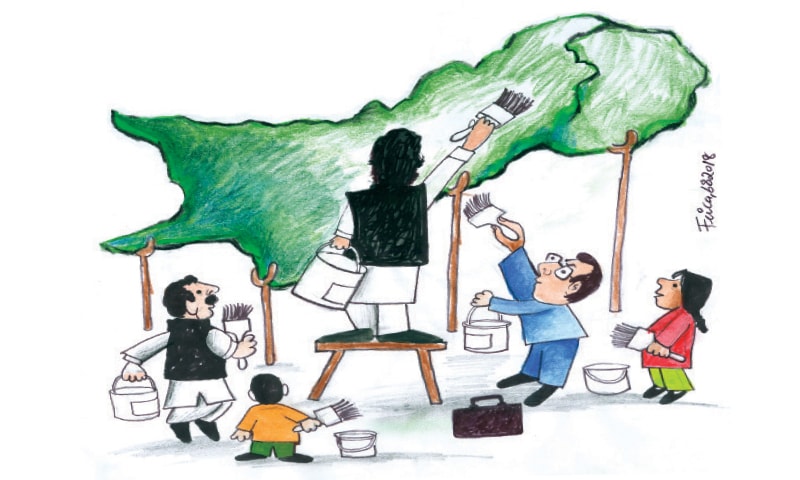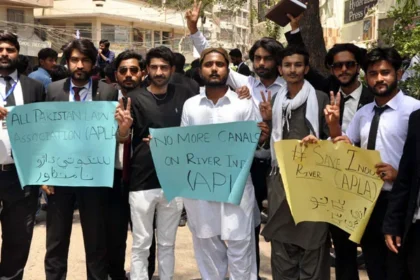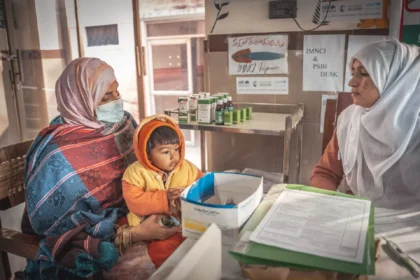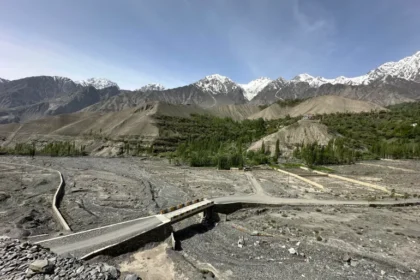The most widely accepted definition of democracy is that of Abraham Lincoln, who defined democracy as “government of the people, by the people, for the people.” So it can be said that democracy is not a government. It is an ideal that pervades every aspect of the country and transcends political processes. Rather than drawing power from unseen forces, it is the will of the people that is drawn from the people themselves. But every ideal can be tainted, and democracy is no different. There is democracy in Pakistan, but does it work? It is there, but does it have a soul? The state declares democracy, but its pillars are weakening under the burden of unseen and unaccountable forces. It’s a paradox: a democracy that is not a democracy, a republic where people vote but do not decide.
Democracy vs. Authoritarianism
Democracy is distinct from authoritarianism because it holds the government accountable to the people, formulates policy in the public interest, and allows institutions of the state to act autonomously. An authoritarian state bestows authority on a small elite, represses opposition parties, and makes decisions without the consent of the people. Pakistan is a proclaimed democracy, but the people have minimal influence in government. Their vote upsets the result of elections but not the exercise of authority. Although their rights are guaranteed in the Constitution, both the laws are curtailed in practice. But what if authoritarianism and dictatorship are blended with the semblance of democracy? What if the people are replaced with an invisible force in lieu of the elected representatives?
The History of Authoritarianism in Pakistan

Alas, the history of Pakistan has been one of authoritarianism instead of democratic rule. Democracy has never taken root since the establishment of Pakistan in 1947. In Pakistan’s history, authoritarianism has been seen in different forms. There have been instances when the army commanders have overpowered democracy openly. There have also been instances when it has been done covertly and has shaped court verdicts, elections, and policy. Civilian governments have been prone to consolidate authoritarianism by stifling the press, silencing opposition, and crushing anyone who dares to differ, rather than consolidating democracy. Leaders get removed, imprisoned, or exiled if they attempt to go beyond what is sanctioned. This keeps on repeating itself: democracy is permitted, but only to a limit set by unelected leaders.
The Role of the People in True Democracy
The true test of democracy is the number of people involved in decision-making, and not the number of elections. People in Pakistan are not really involved. They vote, but their power ends there. Leaders formulate policies without the people, take laws without their approval, and govern without the advice of common people. Politics is hereditary, and hence leadership is inherited and not earned. The old families, power brokers, and cliques continue to make the decisions, with common people excluded from the picture when it comes to governing the country.
Civil Liberties and Public Rights in Pakistan

Civil liberties and public rights in Pakistan are not absolute. The right to protest is brutally suppressed. Censorship of the media limits the right to information. When opposition parties are systematically crushed, the right to political association is trampled. The aim of democracy is to empower the people, but in Pakistan, citizens have to fight tooth and nail to exercise their rights. An authoritarian regime masquerading as a democracy is one in which basic liberties are at the mercy of the ruling class. A society in which basic liberties are prescribed by the ruling class is not a democracy in the true sense; rather, it is an authoritarian regime masquerading as one.
Political Instability in Pakistan
Political instability is another key issue that is endangering Pakistani democracy. In several decades, the fragmentation of successive governments, early elections, and deliberate changes of leadership created a culture of frightening political instability. No legislature, no matter how strong or perhaps unchallenged, is likely to be free from external pressures throughout its lifespan. These instabilities discourage policymaking, development, and social advancement. Political stability is a required prerequisite for democracy to thrive fully because it allows elected governments to fulfill their duties without fear of external agents.
The Need for Education in Democracy

Moreover, education is required to inculcate democratic values. Any democracy is founded on an educated and enlightened electorate. Most of Pakistan’s citizens are deprived of access to quality education and thus are politically vulnerable to political exploitation. Where present, an effective system for the education of critical thinking can further minimize democratic participation, so it must be allowed to evolve. Pakistan needs to make a conscious investment in education that leads to civic sensitization, critical thinking, and awareness of democratic rights if it wants to ensure entry into a democratic future.
Hope for Democracy in Pakistan
In spite of this, Pakistan fails to safeguard democracy. Change has to originate from the people. A society resistant to accepting authoritarianism is seen in the widespread acceptance of some political movements, greater political awareness among youth, and calls for free elections. Social media has given voice to alternative narratives despite censorship. The spirit of democracy can be stifled, but it is alive and kicking because people still aspire for the freedom to rule despite suppression.
The Path to True Democracy

Radical change is required if Pakistan is to be a true democracy. Elections must be free, fair, and unimpeded. Choices must be made on the basis of justice and not fear, and the judiciary must be independent. Freedom of speech must be ensured so that the powers are held accountable to the people and to the media. Political power must be deconcentrated so that new leaders rise to power and not a dynasty. For government to be the reflection of the will of the people, it is necessary that non-elected institutions keep politics at arm’s length.
Pakistan is at a turning point. It can opt to adopt true democratic principles, where power lies in the hands of the people, or adopt the route where democracy is manipulated, controlled, and curtailed. The decision has to be taken by the people themselves, and not by politicians or institutions. Pakistan’s democracy will be a name without content, a system where people are engaged but never exercise political power, until people themselves get empowered.















Well written. Good comparisons drawn. Evidence backed claims.